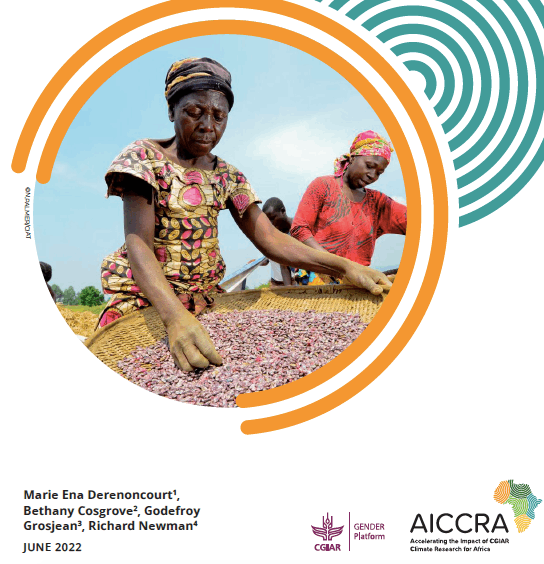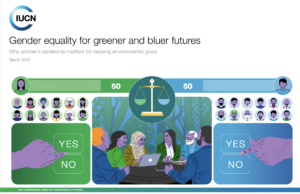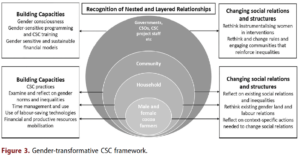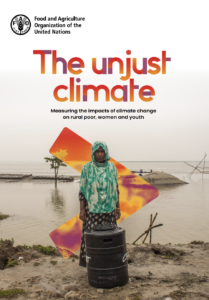Sub-Saharan African agri-food systems are threatened by climate change at a time when demand for food is increasing and global markets are disrupted. The result is loss of livelihoods and growing unemployment, hunger and malnutrition. Women are disproportionally affected, yet have limited opportunities to participate in adaptation efforts.
Mainstreaming gender-smart investments in climate-smart agriculture (CSA) presents great opportunities to mitigate risks, amplify impacts, and reduce gender inequality. This can better inform investment decisions and identify market opportunities by focusing on:
- Building capacity and increasing access to finance for women-owned and women-led agricultural small and medium enterprises (SMEs)
- Promoting gender equality within agribusinesses and across their value chain partners
- Offering products or services which significantly improve the lives of women and girls.
CGIAR research has identified four key dimensions for promoting gender equality in the context of CSA:
- Participation in decision-making at the household, community, national and global levels
- Access to, control of, and ability to use productive resources such as agro-climatic information, technology, credit and income
- Decreased workloads that free up time and ease physical burdens
- Collective action as a platform for women to share information and resources, support each other, express their voice, and participate in community decision making.
Authors: Marie Ena Derenoncourt, Bethany Cosgrove, Godefroy Grosjean and Richard Newman
Source: CGIAR



